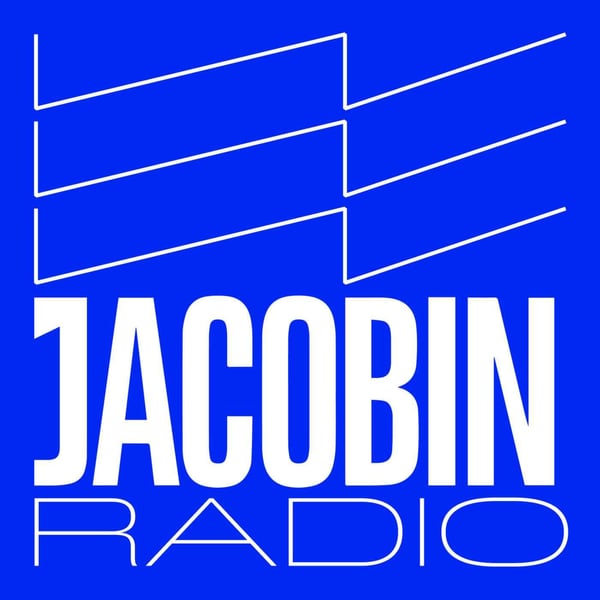Primer: Thinking Outside the Big Box
Jacobin Radio
Jacobin
4.7 • 1.5K Ratings
🗓️ 5 January 2022
⏱️ 45 minutes
🧾️ Download transcript
Summary
This week, we speak with Alex Han, executive editor of Organizing Upgrade about a recent conversation he moderated between an Amazon activist named Howard and Wade Rathke, chief organizer of ACORN in the U.S. from 1970 – 2008. The discussion focuses on the successes and failures of organizing during the era in which Walmart was the ascendant force in commerce, a role Amazon plays today.
Organizing Upgrade published the conversation as a three part series you can read here.
You can listen to Primer by searching for Jacobin Radio on Apple, Spotify, or wherever you listen to podcasts. To keep up with us elsewhere, follow @primerpod on Twitter.
Hosted on Acast. See acast.com/privacy for more information.
Transcript
Click on a timestamp to play from that location
| 0:00.0 | Welcome back to Primer, the podcast about all things Amazon. |
| 0:04.0 | I'm your host, Alex Press, recording from Brooklyn, where I've just moved back to in the midst of yet another new COVID wave. |
| 0:11.0 | These society-wide disasters, COVID but also natural disasters, can't help but place the spotlight back on the people at Amazon who keep things going. |
| 0:20.0 | I mentioned natural disasters because I'd be remiss not to mention the absolutely horrible one that happened recently when a tornado ripped through an Amazon facility in Edwardsville, Illinois. |
| 0:29.0 | Killing six workers, at least. |
| 0:32.0 | The evidence coming out of that tragedy is really horrifying, showing that Amazon's patchwork system of third-party contractors mixed with its relentless drive to keep workers on the job, even in life-threatening weather. |
| 0:43.0 | Pretty directly led to those deaths. |
| 0:45.0 | It's not the first time. |
| 0:47.0 | Here in New York, warehouse workers were pushed to stay on the job through flooding in hurricanes, not that long ago. |
| 0:54.0 | But in this case, in Illinois, text from the Amazon contractors who were delivery drivers working out of that facility suggests that workers were demanding to leave their roots and dispatchers denied them the right to protect themselves, suggesting instead that they might lose their jobs if they did so. |
| 1:09.0 | There's an investigation ongoing here, but suffice to say, Amazon's constant evasion of responsibility for such workers, reporting shows that only seven of the more than 100 people who worked out of that location were classified as technically Amazon workers. |
| 1:22.0 | Is what creates situations like this. |
| 1:25.0 | It's worth adding that this isn't just an Amazon problem. |
| 1:28.0 | Workers at a Mayfield consumer products factory in Mayfield, Kentucky, a few hours south, were told that night that they'd, quote, be more than likely to be fired, and quote, if they left work. |
| 1:39.0 | There were more than 100 of them working that shift, including seven prisoners, and they worked even after the tornado sirens began sounding. |
| 1:46.0 | Eight people died on that site, and last I saw several were missing. |
| 1:51.0 | A counter example worth entering into this conversation is the case of UPS workers who were operating out of a small delivery center near the World Trade Center on 9-11. |
| 2:00.0 | Jacobin is published a piece a few years back by Danny Catch, who is one of those workers, which details how after the first plane hit, they went back to the center to get their stuff and go home, fearing more attacks were on their way, but their supervisor told them to keep working. |
| 2:16.0 | Quote, if you leave, their supervisor said, turn over your ID, because you're not coming back. |
| 2:22.0 | Catch writes that they quickly decided to defy this threat and walk out anyway, and a large reason they felt they could do so was that their members of Teamsters Local 804. |
| 2:31.0 | They had a union, so they knew if they were in fact fired, they'd have a chance to defend their actions. |
| 2:36.0 | That gave them the confidence to risk their jobs, to protect their lives. |
... |
Please login to see the full transcript.
Disclaimer: The podcast and artwork embedded on this page are from Jacobin, and are the property of its owner and not affiliated with or endorsed by Tapesearch.
Generated transcripts are the property of Jacobin and are distributed freely under the Fair Use doctrine. Transcripts generated by Tapesearch are not guaranteed to be accurate.
Copyright © Tapesearch 2025.

